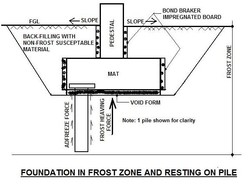
1. The goal: If the question, "When am I going to use this in my real life," derails your class, there's a problem with your purpose and goal. The truth is, almost nothing after taught 5th grade is knowledge used daily. The purpose of education is not to teach MLA formatting or how to factor a polynomial.
The goal is to develop a careful, thoughtful and resourceful young person that is adaptable, a problem solver and has perseverance. That's the destination. The particular subject serves as (1) the vehicle to arrive at the destination, and (2) an exploration into potential aptitude and interest, (3) as well as a foundation of reference knowledge.
2. Autonomy: When students understand they're in charge of education outcomes and find value and validation from their efforts, they'll perform.
In other words, when they do it for themselves and receive appropriate praise and feedback for progress, their potential and performance will increase.
3. Letting Go: Some kids aren't ready. I barely passed Algebra 1 as a freshman in HS...in fact, I'm sure that 60% final semester grade was rounded generously. Yet, I ended up with a BS in Math.
You, the teacher, cannot reach them all. Leave the door open, realize every misstep is a chance to teach them, but learning is done on their end, not ours.
If a kid fails, let them. Work with them to succeed, but hold firm to the standard. If you falter, and pass a student that didn't deserve it, the value of the accomplishments of other students will be discounted.
Why I'm sharing this is to color this short story:
The last three years I had 100% passing rate by all takers, not cherry picking, on IGCSE, around 10% passing rate in AZ. This year I'm pretty sure at least one student will fail. They earned the first F grade I have assigned in six years in that class.
That student just wasn't ready. At the end, the student came begging to get a passing grade. I explained to the student that while they were close to passing, to change their grade would be a grand insult...it would say that I did not believe they were capable of performing as well as their peers.
The next day the student approached me. I thought, ut oh, more grade grabbing negotiation...but to the student's credit, they just thanked me, said they're glad for the F and will do better in the future. No more crying, no hang-dog look...but instead a confidence because the student was capable and will be in the future. Perhaps now, the student is ready.
I don't want students to say, I only got through math because of you, Mr. Brown. That would make math the destination, not the vehicle. Best compliment a teacher can get is, you taught me to learn.



